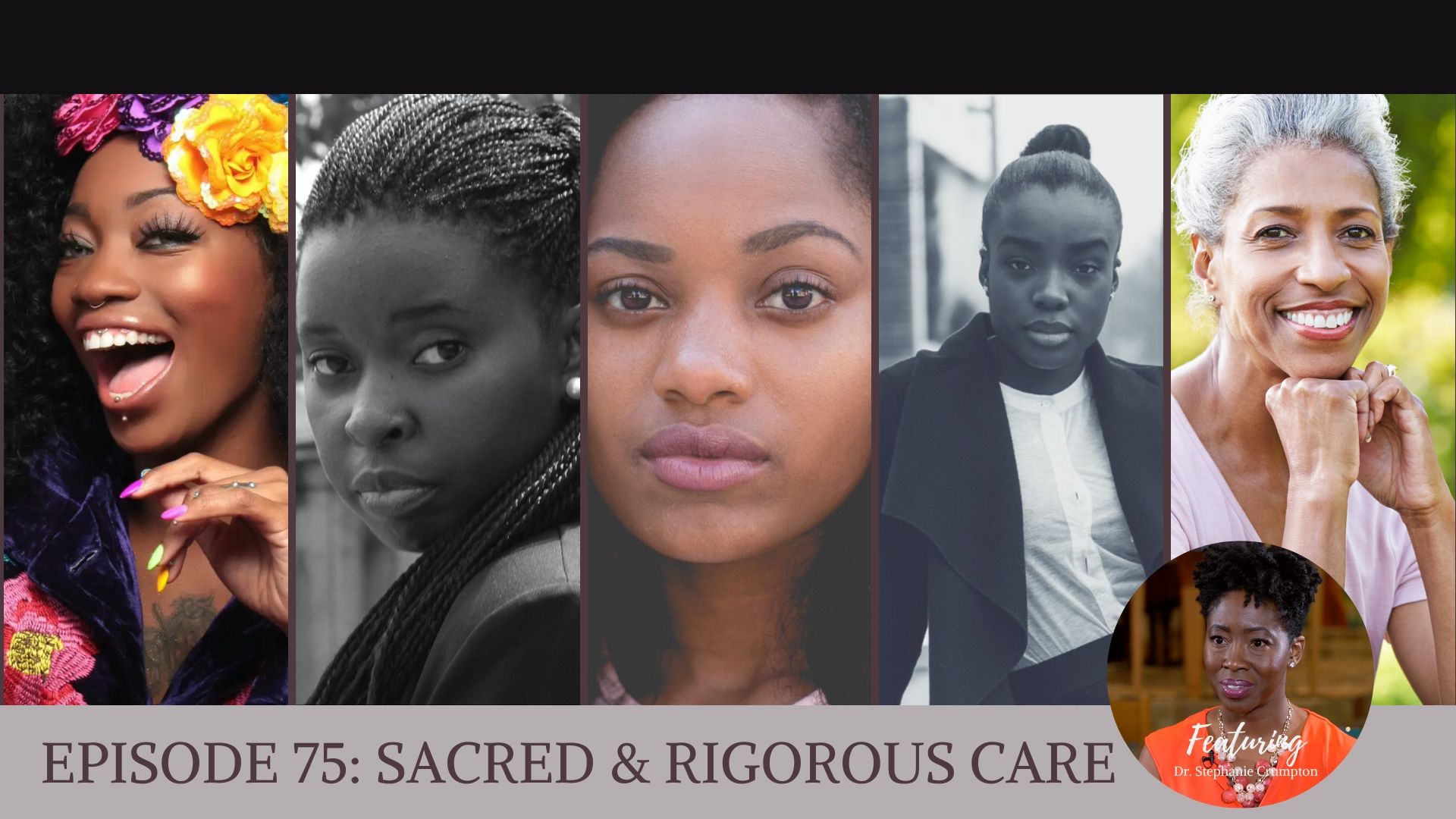How does giving love, attention, and care to women and girls who are Black reorient our sense of ministry… making it better everywhere and with everybody?
I asked Dr. Stephanie Crumpton this question as a follow up in our recent conversation about pastoral care for Black girls and women. She tells us just how “profoundly political and deeply sacred” the work is.
In this conversation, Dr. Crumpton points out key factors in the sacred and rigorous work of caring for Black women and girls.
First, there is a Catch-22, or as Christy Neuger calls it, a double bind. When we place at the center of our focused attention, the care of Black girls and women, we run a double risk. On one side we risk our own voyeurism as care-givers. For too long Black females have been expected to live as if always under a watchful eye. At the same time, their voices, creations and lives have been routinely marginalized. So the idea of placing them at the center, even for the sake of care, risks a great deal of potential social, emotional and psychological exposure for them.
Pastoral and spiritual care for Black girls and women
When we add a layer of caring for Black girls and women who have experienced harm, violence, or sexual exploitation, the stakes are even higher. As caregivers, we must take steps that reduce harm and minimize undue risks. These are recommendations offered by Dr. Crumpton.
- Check in with ourselves about motivations and intentions. Dr. Crumpton says each of us must, “Do our own work. Even if you yourself are Black woman giving care to Black girls and women.” When giving care to another who has been harmed, we have to check in with ourselves, and especially if you are white (my emphasis), because implicit bias runs so deep and explicit bias is not far from the surface either.
- Work collaboratively with others to do the work. Care for Black women and girls who have been under scrutiny and the white gaze for centuries, requires that we don’t enter into this work lightly or alone. This care is, as Dr. Crumpton says, “communal work.”
- Avoid with rigor and intentionality, stereotypes and tropes that culture and our own psyches can hold. (See more about implicit bias.) We must allow girls and women seeking care to have the full range of human emotions and express those feelings openly, without our stereotypes with judgments that place limits on them.
- This leads to one final key points that Dr. Crumpton makes. We need to recognize that our choice to prioritize care for Black women and girls is not only pastoral, but also a political one.
Pastoral care is not simply making everyone feel better or being nice to people. It is also power-laden work.
This week Dr. Stephanie Crumpton helps us think about the sacred & rigorous tasks of caring for black women & girls. #3MMM #practiceofministry @McCormickSem pic.twitter.com/gVzgO7mJ7m— Three Minute Ministry Mentor (@3MinuteMin) July 13, 2020
A rigorous and sacred calling
This work is in short, “complicated, necessary, rigorous,” says, Dr. Crumpton, “and it makes us all better.”
As you think about your practice of ministry, and the specific work of pastoral care, I hope you will take these wise insights seriously. Remember Dr. Crumpton’s book 2014 book, A Womanist Pastoral Theology Against Intimate and Cultural Violence, is an important resource. And particularly take seriously that when you engage in pastoral work to move people from margins to centers, you are also doing political work.
In our present world, the call to ministry is rarely one of neutrality. Rather we are called to take intentional and wise risks. Our calling is to be on the side of those the world of power might rather dismiss or ignore.
What “profoundly political and deeply sacred” work is calling to you today?




